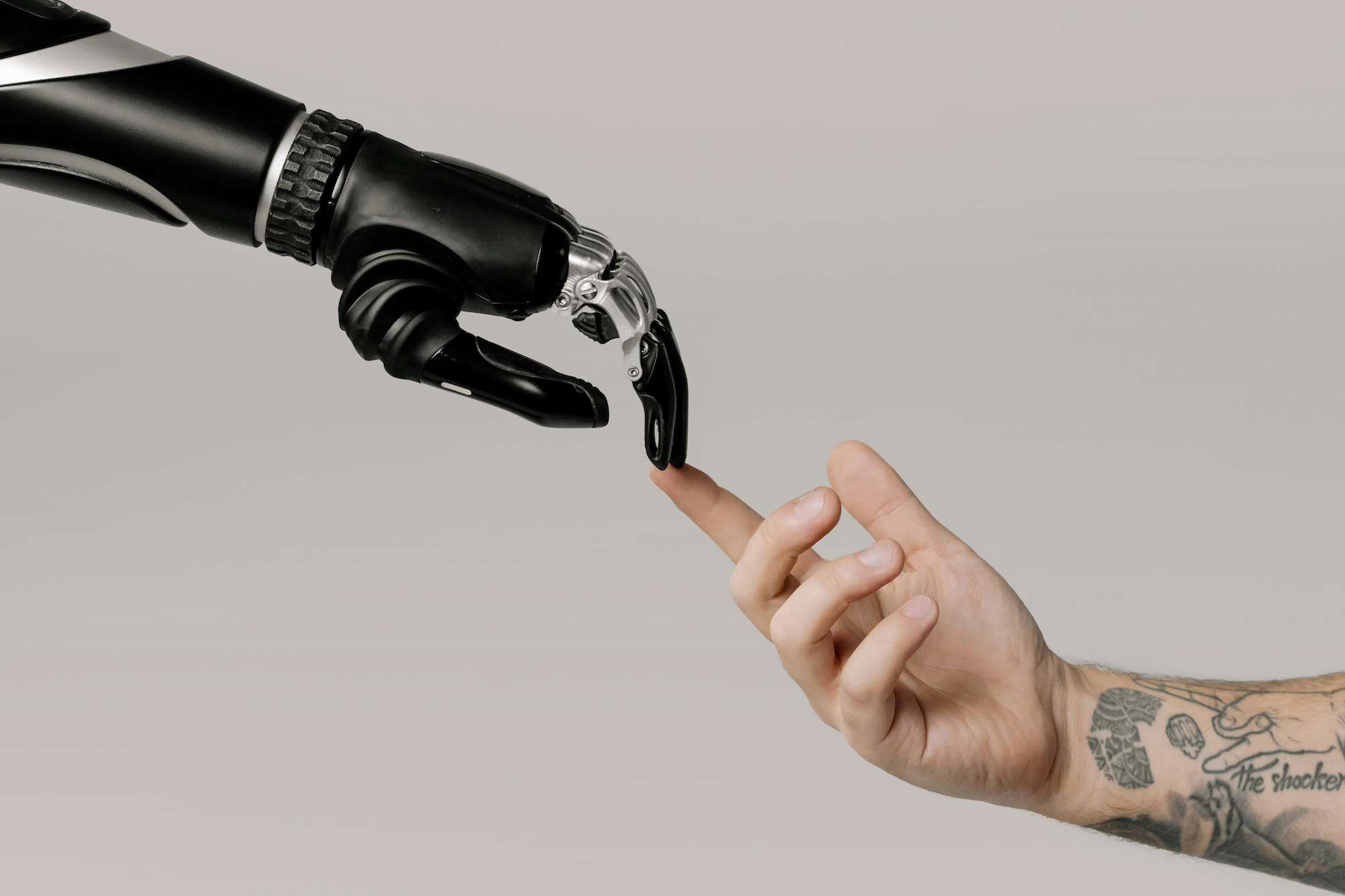
eCommerce
How to Sell Designer Accessories?
Whether you're currently operating a business or merely considering entering the luxury goods market, significant opportunities for achievement await. Accessories...
Most impactful AI trends for eCommerce businesses in 2025
eCommerce

AI is reshaping the way eCommerce businesses function.
From chatbots that offer real-time customer service to algorithms that predict buying behavior, AI's influence on online businesses has been overwhelmingly positive, with 77% of company leaders claiming that AI will bring them a competitive advantage, reports Dialpad.
This tech wave has empowered businesses to connect with their customers on a more personal level, streamline operations, boost sales figures, and many more.
But as we look toward 2024, the question on every eCommerce entrepreneur's mind is: What's next?
Today, we get into the most impactful AI trends set to dominate the eCommerce sector this year.
Get ready to discover how these emerging AI trends can further optimize your online business, ensuring you stay ahead in the competitive eCommerce landscape.
Check out: Fashion eCommerce trends for 2025
Predictive customer behavior is reshaping how eCommerce businesses interact with their audience.
With AI’s robust analysis of historical data, businesses can predict which products or services customers are likely to need next.
This foresight enables companies to craft marketing strategies that resonate on a personal level, making shoppers feel understood and valued.
According to a 2022 survey, 60% of interviewed marketers stated that the main reason they use AI for improving CX is because it helps them predict customer behavior.
Identifying such patterns allows for anticipation of needs even before the customer expresses them.
AR shopping is all about allowing customers to try on products virtually before making a purchase, creating a more engaging, fun, and interactive shopping experience.
But that’s not all. By integrating AR shopping into your eCommerce store, you can also significantly reduce return rates.
According to Threekit, AR can contribute to up to a 40% increase in conversion rates.
How? Well, when customers can virtually try on products, they have a better understanding of what they are getting before deciding to buy the product. This leads to fewer unwanted surprises when the package arrives.
So, are people actually using AR?
Statistics show that by 2025, in the USA, UAE, and Saudi Arabia over 40% of customers are expected to rely on AR, which gives us promising results for the rest of the world as well.
Take a look at how eCommerce store Warby Parker takes advantage of this technology by allowing customers to try on their glasses virtually.

By giving customers what they want (sometimes before they even know they want it), businesses see happier customers and fewer returns.
Out of all types of customers, Gen Z seems to show the biggest appreciation for customized shopping, with up to 74% of Gen Zers responding that they prefer personalized products in comparison to 67% of Millennials, 61% of Gen Xers, and 57% of Baby Boomers (SalesForce).
But how does AI help in offering personalized shopping?
AI tools can analyze clicks, views, and past purchases of customers and then suggest products that they’re likely interested in.
With this ability, AI can tailor the entire shopping experience – from marketing emails and product recommendations to deals and promotions.
For instance, if a customer has been eyeing a new pair of sneakers on your online store, AI can recommend athletic wear that matches their taste.
For example, Selfridges has incorporated a ‘You may also like’ section on their checkout page, displaying products similar to those customers are planning on purchasing.

Chatbots and virtual assistants are changing how eCommerce businesses interact with customers.
Customers expect quick answers to their questions, and chatbots deliver this by handling inquiries in real time.
With the ability to manage countless conversations at once, AI-powered customer service also significantly boosts efficiency. It can effortlessly juggle more customer queries than a team of human support agents.
On top of that, nowadays, virtual assistants can go beyond generic responses by offering tailored replies by analyzing past interactions and purchases.
As a result, in a study conducted by Statista, up to 44% of customers reported that they appreciate the help of chatbots.
Engaging with an AI assistant has become a seamless part of the shopping journey — one that’s expected to continue evolving as AI trends progress in the world of eCommerce.
Voice search has been shaking things up in the eCommerce world for quite some time now.
Virtual assistants like Siri, Alexa, and Google Assistant are changing the way customers shop online.
With just a simple voice command, customers can track down their favorite products without lifting a finger to type.
And as it turns out, up to 60% of online shoppers appear to be buying items through voice search (OnlineDasher).
Here are some reasons why voice search is becoming increasingly popular among consumers and why eCommerce businesses should take notice:
Visual search is all about boosting convenience for shoppers.
Here’s how visual search technology works: Customers upload an image to your eCommerce store, allowing them to scour your inventory to find matching or similar products.
Invesp reports that in a study up to 50% of respondents considered visual information much more important than text and 36% have already used visual search during shopping.
Here’s a real-world example of how businesses are leveraging visual search:
Within their mobile app, retail fashion store ASOS has launched the Style Match tool. This tool lets customers upload photos within the app and instantaneously find similar clothing items to what they were looking for.


Cyber threats and attacks are becoming more advanced, making AI-powered web security a must-have for online businesses.
By using machine learning algorithms, AI-powered security systems can monitor online activities in real time and immediately flag any suspicious or abnormal behavior: from from detecting bots and identifying security breaches to catching phishing attempts and unusual login patterns
With this continuous monitoring, threats can be identified and dealt with before they cause any harm.
This ability of AI to proactively identify threads has driven businesses to leverage AI technologies to safeguard their digital assets, contributing to the AI cybermarket being valued at 22 billion USD as of last year.
From all the data we presented, it’s clear that we’re standing on the brink of a new era.
From AI-powered virtual assistants and predictive customer behavior to personalized shopping and cybersecurity, the potential of AI in eCommerce is becoming limitless.
The process of integrating AI into eCommerce is still very much in development, but one thing is clear: the future of AI for eCommerce businesses promises a smarter and faster shopping experience that will benefit both sellers and customers.
AI is being used in various ways in business, including personalized product recommendations, chatbots for customer service, and data analysis to optimize marketing strategies, to name a few.
Some of the current AI trends in business include:
AI is revolutionizing the dropshipping industry by improving product recommendations for customers, automating order processing and fulfillment, and enhancing customer service through AI-powered chatbots. These advancements help dropshipping businesses operate more efficiently and deliver a better overall shopping experience.
What is dropshipping?